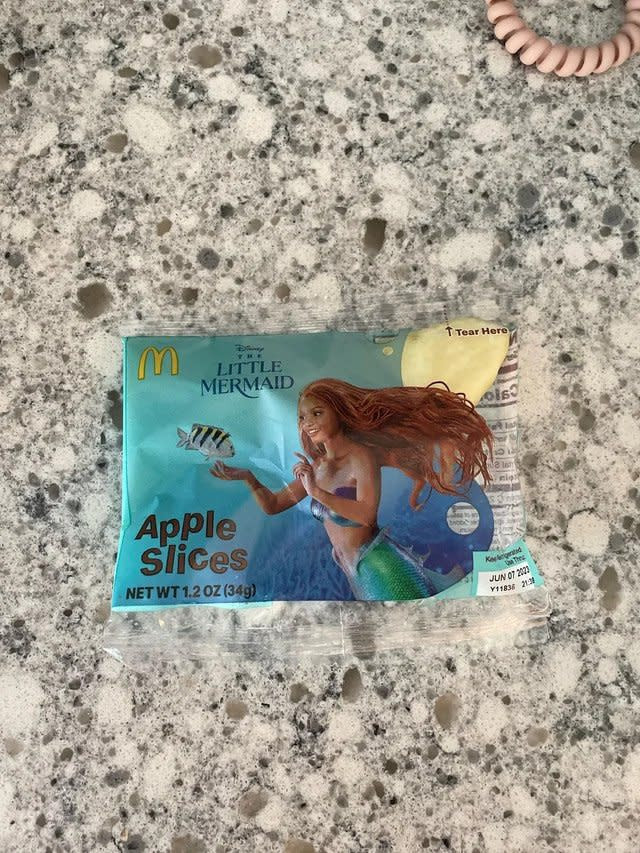Fast food giant McDonald’s has recently drawn attention for its use of “The Little Mermaid” branding on plastic packaging for apple slices. This promotional tie-in with the major Disney film has sparked debate, particularly regarding the environmental implications of single-use plastics in relation to an ocean-themed movie. A photo of this packaging was shared on Reddit, highlighting the irony of advertising a film about the ocean on a plastic bag destined for potential ocean pollution.
 McDonald's Happy Meal apple slices in plastic packaging featuring Disney's The Little Mermaid branding, highlighting the fast food chain's promotional tie-in with the movie.
McDonald's Happy Meal apple slices in plastic packaging featuring Disney's The Little Mermaid branding, highlighting the fast food chain's promotional tie-in with the movie.
This packaging choice underscores a larger environmental concern: the significant contribution of plastic waste from fast food and other industries to ocean pollution. Alarmingly, 80% of all marine pollution is plastic. Each year, an estimated 9 to 11 million tons of plastic end up in our oceans. This pollution persists for centuries, with plastic items taking between 500 and 1000 years to degrade, even then breaking down into microplastics that can contaminate the food chain.
While discarded fishing gear represents a substantial portion of ocean plastic, a considerable amount, approximately 44%, originates from takeout food packaging. This is particularly concerning as plastic pollution poses a direct threat to marine life. Over 900 marine species, including iconic creatures like whales, dolphins, and sea turtles – many of which are featured in “The Little Mermaid” – are known to ingest or become entangled in plastic debris.
The McDonald’s “Little Mermaid” packaging has resonated with consumers online, prompting discussions on platforms like Reddit. Many have voiced concerns about the continued use of plastic in fast food packaging, especially when biodegradable alternatives have been available for years. One commenter noted the irony of using non-biodegradable plastic for a product promoting a movie celebrating ocean life, especially considering the vast number of Happy Meals McDonald’s sells daily, each potentially contributing to plastic waste. The conversation reflects a growing awareness of the environmental impact of fast food packaging and a desire for more sustainable solutions.

